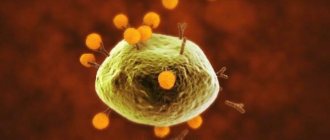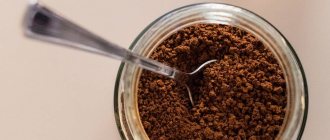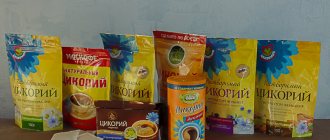Coffee has unique properties that have a beneficial effect on the body. But many women try to avoid this drink after giving birth. As you know, all the food consumed by the mother passes through the milk to the baby in an enzymatic form. Why did the drink end up in prohibited foods during breastfeeding? And is it possible to drink coffee while breastfeeding? Let us determine in what quantity and what type of drink will benefit the mother and not harm the newborn.
Caffeine while breastfeeding: safe amount
In short, a nursing mother can drink one or two cups of coffee or five to six cups of black tea per day.
Caffeine is not prohibited during breastfeeding, but it is recommended to limit the amount to 300 mg per day. Please note that caffeine is found not only in coffee and tea, but also in other drinks, some foods and medicines, such as:
- Carbonated soft drinks and energy drinks
- Chocolate and coffee ice cream
- Some over-the-counter pain relievers
- Diet food: protein powders, energy bars
Pay attention to the ingredients in your products, and check with your doctor or pharmacist to determine if caffeine is in the medications or supplements you take. And from this visual table you will find out how much caffeine is contained in popular drinks.
How to choose coffee drinks for nursing mothers?
The main rule for women during lactation is to choose only high-quality coffee from trusted manufacturers, preferably unroasted. Lovers of aromatic roasted grains should only pay attention to a manufacturer that offers them in a freshly ground (preferably coarsely ground) version. This drink not only tastes better, it contains less caffeine.
Coffee with milk or low-fat cream will be more beneficial during breastfeeding. As for the choice of a natural or instant drink, the first has an order of magnitude less caffeine, and besides, instant coffee is most often a mixture of ground beans that are not of the best quality.
To summarize, we note that the best option for a nursing mother who cannot deny herself the pleasure of a cup of aromatic drink is proven varieties of natural coffee, coarsely ground, freshly ground. This choice will have a better effect on the baby.
What to do if caffeine in breast milk causes a reaction in your baby
If you notice a reaction in your child to caffeine, try reducing your daily caffeine intake or avoiding it altogether for a few weeks to allow the caffeine to leave your system. At the same time, do not stop breastfeeding. You should not suddenly eliminate coffee while breastfeeding, as you may start to experience headaches. Do it gradually. If you think your baby's reactions and behavior are changing because of the caffeine in your breast milk, or have questions about breastfeeding, ask your pediatrician or lactation consultant.
Briefly about the properties of coffee
With the birth of a child, the life of the family, and first of all the mother, changes radically. Sleeping, eating, being outside, just relaxing - all this can be done in accordance with the child’s daily routine. Naturally, the mother (especially in the first months) does not get enough sleep, gets tired, feels a loss of strength and dreams of rest. In moments of weakness, it seems to her that drinking coffee while breastfeeding is the only way to stay afloat and not give up.
This opinion is partly justified. Indeed, a drink made with coffee beans helps increase blood pressure (by an average of 10 units), and during breastfeeding this may be necessary.
The second point is that the drink increases mental and physical activity. In other words, drinking coffee with or without milk, a nursing mother feels a surge of strength and energy necessary for caring for the child and running the household.
Caffeine speeds up metabolism, helping a nursing mother lose weight even faster and get in great shape. The drink is also a diuretic. On the one hand, this is good, on the other, not so good. You should not overuse coffee, causing dehydration and, as a result, blood thickening, thrombosis, and the formation of stones in the ureters and kidneys.
The drink has significant disadvantages:
- instant coffee, like natural coffee, is addictive;
- caffeine negatively affects the functioning of a not entirely healthy heart;
- natural coffee increases blood pressure, which is not always appropriate.
In addition, in a special way, the drink, when it passes through mother’s milk to the baby, affects the functioning of its body systems.
Which drinks contain caffeine and in what quantity?
The table below shows the caffeine content of popular drinks:
| Drink | Serving Size (ml) | Caffeine content (mg) |
| Coffee brewed with boiling water | 220 | 95–190 |
| Decaffeinated coffee brewed with hot water | 220 | 2–5 |
| Espresso | 30 | 47–75 |
| Instant coffee | 220 | 27–135 |
| Black tea | 220 | 30–80 |
| Decaffeinated black tea | 220 | 2–5 |
| Green tea | 220 | 28 |
| Coca Cola | 350 | 34 |
| Coca-Cola light | 350 | 46 |
| Energy drink | 220 | 75 |
| Energy shot | 60 | 200 |
In most cases, 300 mg of caffeine daily while breastfeeding is safe for mom and baby. That is, for example, you can safely drink a cup of coffee and a cup of black tea. If you have questions or concerns, consult your pediatrician or your physician.
Basic rules of use
In order to get maximum pleasure from drinking coffee during lactation and not harm the baby’s body, you need to remember several important rules:
- You cannot drink drinks from coffee machines; you only need to prepare it yourself, using a natural product in beans.
- In order to reduce the amount of caffeine in the drink, you don’t need to brew it in a Turkish tea pot, but simply pour boiling water over it and leave for 4-5 minutes.
- A nursing woman should drink coffee in the morning, immediately after breastfeeding - this way, by the next feeding, most of the caffeine will be removed from the milk, because the high concentration remains for 2-3 hours.
- Coffee removes calcium and magnesium from the body, so mommy is advised to consume foods containing it in large quantities - cottage cheese, cheese, kefir.
- The number of cups allowed per day is no more than one.
During lactation, drinking must be accompanied by an additional glass of water or other liquid. Drinks containing caffeine have a mild diuretic effect and cause dehydration and can cause problems with fluid balance.
A cup of aromatic, strong coffee is an essential attribute in the diet of many women. But after giving birth, you need to be extremely careful about your diet and limit all allergenic foods. Coffee is allowed during breastfeeding, but in strictly limited quantities, no more than a cup per day. Any deterioration in the child’s well-being indicates that it is best for a nursing mother to give up the invigorating drink for a while.
How this article was written
The information presented in this article is based on expert advice published by trusted (medical and government) sources such as the American Pediatrics Association and the American College of Obstetricians and Gynecologists. A complete list of links to sources used to write this article can be found at the end of the article. The information on this page is not a substitute for professional medical advice. Always consult your doctor for diagnosis and treatment.
Looking for an alternative to coffee
If a mother or child has contraindications to its use, it is recommended to exclude coffee from your diet (at least temporarily).
But what to do if mom loves him very much or one or two cups a day is not enough for her? In this case, you can find an alternative to coffee.
Substitutes for this drink are:
- chicory. It contains many vitamins, macro- and microelements, as well as many other useful components. This drink has a calming effect on the nervous system, gastrointestinal tract, improves metabolic processes in the body;
- barley drink. One of its important advantages is increased lactation. It contains proteins, vitamins, plant fiber, and mineral salts. Barley drink improves the functioning of the kidneys and digestive system;
- acorn coffee. This drink contains a lot of protein, tannic acids, starch substances, and plant flavonoids. Thanks to which it has an anti-inflammatory, antibacterial effect, and acorn coffee normalizes the functioning of the cardiovascular, nervous, respiratory and digestive systems.
Conclusions:
- World doctors do not ban coffee. Domestic ones are more wary, but in general they allow its use, especially without caffeine.
- Dr. Komarovsky allows mothers to drink coffee if the child does not have allergies and generally feels well.
- Choose natural high-mountain Arabica beans, or, as a last resort, ground coffee. Soluble is strictly prohibited! No syrups.
- It is recommended to start drinking coffee no earlier than 2 months after the baby is born.
- Monitor the child's condition: most mothers calmly drink decaffeinated coffee, and this does not affect the child.
Contraindications
You should refrain from drinking the drink in the following cases:
- pregnancy;
- sleep disturbance;
- breastfeeding period;
- the presence of any mental disorders;
- diseases of the stomach and duodenum;
- glaucoma;
- high blood pressure;
- hypertension;
- taking oral contraceptives and antidepressants;
- the presence of iron deficiency anemia;
- cirrhosis of the liver.
In other cases, you need to consult a specialist.
Misconceptions
Today's doctors have debunked many myths about whether coffee is ok when feeding a baby with breast milk. If previously it was strictly prohibited, and a detrimental effect on the child’s nervous system was noted, now this statement has been refuted. Although, the fact of accumulation of harmful substances due to the inability of the infant’s body to remove them cannot be ruled out.
Another incorrect assumption was that instant coffee was harmless. On the contrary, all sorts of chemicals are added there, and there is so much caffeine that it can have a bad effect even on a healthy heart.
They also talked about the benefits of a “decaf” drink. But now it has been proven to be harmful to humans.
Acceptable quantity
It is better to check with a doctor who monitors the development of the fetus and the condition of the mother for information about whether a pregnant woman can drink decaffeinated coffee. If he did not reveal any serious violations, then it is possible that you will be allowed to periodically pamper yourself.
The acceptable daily intake is no more than three cups; otherwise, you may experience bouts of nausea and other unpleasant symptoms.
Effect of caffeine on babies
The effect of caffeine on a child is one of the main reasons why coffee is not recommended for breastfeeding women. After all, it can lead to nervous excitability in the baby. The baby will become overly restless, and sleep problems are also possible. But this effect is achieved only when the mother is already addicted and drinks several cups a day. The situation is further aggravated by the fact that the newborn’s body is not yet able to absorb such components, and therefore does not remove them from the body, but rather accumulates them.
Therefore, only rare consumption of coffee will help minimize the risk for the baby.
The appearance of allergic reactions is also not mandatory and occurs in rare cases. It is worth remembering the possible risk, and to avoid rashes and itching, adding the product to a nursing woman’s menu should be done carefully, starting with small portions. But the appearance of anemia in a baby when the mother abuses coffee can really be attributed to negative consequences. Since with constant use, a strong invigorating drink reduces the iron content in mother's milk, which means the baby will feel its lack.
If you are not allergic to milk protein, coffee with milk is a better choice than strong espresso.
The benefits and harms of coffee for a nursing mother
The hardest thing about caring for an infant is the inability to get enough sleep. A cup of aromatic liquid for a new mother is an easy and pleasant way to cheer up and get a boost of energy. Lovers of this drink give many arguments in its favor, saying that coffee:
- Improves concentration and attention;
- Increases blood pressure by up to 10 points, which is important for those who have low blood pressure;
- Strengthens the immune system ;
- Helps with headaches, reduces the amount and severity of discomfort during migraines;
- Improves metabolism;
- Improves mood.
A cup of cappuccino or espresso is one of the few pleasures available to a mother caring for her baby. It is difficult to give it up, even knowing what the consequences of excessive passion for this drink can lead to. Some experts argue that the benefits of coffee are questionable, since its consumption can lead to such consequences as:
- The emergence of dependence. The effect of an invigorating liquid on the body is akin to a narcotic: it quickly becomes addictive;
- Leaching calcium, magnesium and vitamins from the body;
- Dehydration. The drink has a diuretic effect, after drinking it it is recommended to drink a glass of water;
- Increased risk of stroke;
- Formation of kidney stones;
- Increased acidity in the stomach. The active components of the product suppress beneficial microorganisms and increase the number of harmful ones;
- Insomnia , depression.
Coffee does not give additional strength - it reveals the hidden resources of the body.
Short-term, for an hour or two, vigor will be replaced by fatigue and apathy. Constant stimulation of the central nervous system leads to increased stress, outbursts of irritation, and hysterics. Systematic dehydration causes dullness and sagging skin, leading to cellulite. This method of cheering up is contraindicated for hypertensive patients.
Which coffee should you choose?
Decaffeinated - understandable, but what about more detailed characteristics? On the shelves there are instant, ground, and bean varieties; many can be ordered in online stores. A young mother has no time to compare all the features.
- Coffee beans are the best option. Especially if it is highland Arabica, it contains less caffeine. It is advisable to buy a coffee grinder and grind the beans immediately before cooking, but if this option is not suitable, take the beans and ask them to grind them in the store.
- Ground decaffeinated coffee in packages will also work, but who knows what's inside. Take packs from well-known global manufacturers, you can order from European countries.
- Soluble - strictly prohibited. Not only are the cheapest grains used, but they are also processed using a variety of chemicals. There are also dyes, emulsifiers and stabilizers that are definitely harmful to the child. There is no talk of powder ones at all, but even the seemingly expensive and good freeze-dried options will not suit you.
If it is not possible to brew a drink, do not take instant. Choose ground and brew with boiling water.
How does decaffeinated coffee affect the body of a child and mother?
Many nursing coffee lovers switch to decaffeinated varieties of the drink, believing that the content of harmful substances in them is minimal. It is impossible to completely remove caffeine from beans, so a fifth of the substance is retained in the product.
The danger is different: the caffeine extraction process is carried out chemically. A large concentration of harmful substances is found in low-grade instant “light” coffee. The impurities contained in it can harm the health of mother and child. A decaffeinated drink becomes more acidic, which is harmful for people with stomach problems and intestinal problems. Just like regular coffee, light powder flushes valuable substances from the body, especially calcium. This is unsafe for both the child and the mother. The baby needs additional calcium to form the skeletal system. Women have an increased risk of osteoporosis and fractures.
Interesting fact. Pediatrician Sergei Butriy claims that coffee makes mother's milk taste bitter or changes its taste. This also applies to caffeine-free drinks.
Doctors' opinion
Is it possible to have decaffeinated coffee while breastfeeding? In general, doctors answer this question in the affirmative. In America, mothers are not prohibited from doing anything at all, domestic specialists prefer to play it safe, and old-school doctors urgently demand that they give up coffee altogether, without understanding the varieties and characteristics.
In fact, decaffeinated coffee still contains caffeine, albeit in the smallest doses: usually 97% is removed, in the European Union the requirement is 99.9%. That is, 0.1% remains, 5-10 mg, as in cocoa. This is very little, especially considering that a cup of green or black tea can contain 40-80 mg of caffeine. It is also found in cola, chocolate, citramone, and many medicines. That is, the dose is really low, and with adequate consumption you will not harm either yourself or your child.
Like any new product, a decaffeinated drink can cause allergies. Start with one small cup, a few sips, and monitor the child's condition. Try drinking coffee once a week for a month, and each time monitor the child’s body’s reaction.











